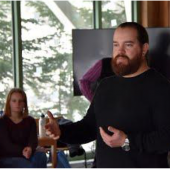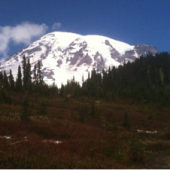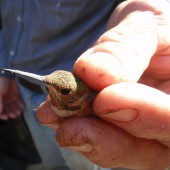
Ojibwe education is used at Conserve School, an environmental semester school, to help high school students better understand diverse perspectives on stewardship and to explore the history, cultures and place of the Northwoods of Wisconsin. In the Environmental Stewardship class, students learn about indigenous history, culture and environmental perspectives from a local Ojibwe forester. The students use this perspective to help them appreciate their place at Conserve School and explore their own environmental ethics. Students also participate in Ojibwe seasonal celebrations to better comprehend how place and people are interrelated.
Continue Reading
Abstract: In this article, we discuss the importance of Indigenous traditional ecological knowledge as the foundation of sustainability education, and we describe the need for, and successful efforts to, begin building an Indigenous Traditional Ecological Knowledge initiative at a research university. We share the guiding theoretical framework of our work, and the three goals of the initiative. We note the tensions involved in crafting a vision statement that a diverse group of faculty, staff, and students can all uphold in our collective work. We conclude with a description of our next planned steps for the initiative, and our hopes that this work will help decolonize sustainability education.
Continue ReadingHere we present a place-based culturally competent Geoscience Education Program (GEP) implemented in an Alaska Native (AN) community, in which we coupled Traditional Ecological Knowledge (TEK) with science, technology, engineering, and math (STEM) disciplines. The GEP was built upon collaborations with the school district, tribal government, community, and a National Science and Technology Center engaging K-12 students about relevant environmental topics of interest to the tribal community, such as the health of local riverine and coastal ecosystems. Our pedagogical approach promoted learning rooted in local history, culture, and language while encouraging students to build STEM expertise. This paper describes a successful Geoscience Education Research project using bioassessment of coastal marine habitats with shipworms as an indicator organism to monitor the health of coastal resources. As an authentic research project, the study not only produced real-world data that substantially benefited the tribal community, but also a novel scientific finding – that shipworms may facilitate bioassessment of marine environments.
Continue Reading
This paper explores examples of the ways that indigenous and traditional stories are tools to guide humans through complex interactions with ecosystems and to remember our shared fate with the land. Traditional stories are not mere superstition or poor substitutes for scientific thinking; they are made up of extremely complex, finely coded information on human subsistence and infused with elements that ensure they continue to be told and remembered
Continue Reading